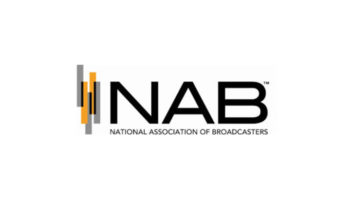The National Association of Broadcasters seems resigned to the fact that broadcasters will be required to begin reporting employment data to the FCC this fall, but it’s what the commission plans to do with that information that concerns the advocacy group.
The NAB has filed a Petition for Partial Reconsideration with the FCC saying the public disclosure of the employee demographic data on a station-specific basis violates both the Free Speech Clause of the First Amendment and the equal protection component of the Fifth Amendment.
The mandatory collection of diversity data, known as Form 395-B, will resume after a more than 20-year pause brought on by a court order. The FCC voted to reinstate the requirement earlier this year saying the collection of the employment data gives it a better understanding of workforce composition in the broadcast sector.
The rule change requires broadcast radio and television stations with five or more full-time employees to collect data on the gender, race, ethnicity and job function of each station employee.
The commission’s choice to publicly disclose the Form 395-B data for individual broadcast stations violates the First Amendment, NAB says in its petition. “The requirement to make the data public is subject to strict scrutiny as it compels speech about a controversial topic and cannot stand because the FCC fails to show that disclosing the data will further a compelling interest.”
[Related: “Law Firm Tells Stations to Save EEO Data ‘Just In Case’“]
In the petition, NAB also explains how the public disclosure of the Form 395-B data on a station-specific basis also violates the Fifth Amendment.
“Disclosing the form data will deliberately unleash pressure on stations to engage in preferential hiring practices, thereby violating the equal protection clause,” the group says.
In addition, given the commission’s new categorization concerning non-binary employees, NAB says a number of broadcasters have expressed concern on behalf of their employees who would be identified as such that they could be harassed due to the FCC’s decision to force broadcasters to place this information in their online public files.
Further, NAB says the commission’s argument that the FCC is “statutorily required to regulate equal employment opportunity practices of licensees” is erroneous, especially when regarding radio broadcast stations. The NAB states it believes the commission is merely authorized by Congress to adopt and administer such rules.
“NAB is concerned that efforts to reframe the FCC’s authority over radio stations’ EEO practices into a statutory requirement, whether intentional or not, could reset the basis for future EEO-related obligations imposed on radio stations,” the group told the FCC in its petition.
The NAB says the commission appears poised to repeat the same mistakes that led the D.C. Circuit Court of Appeals to reject two earlier versions of the EEO rules, including the collection of Form 395-B.
Two separate legal challenges by broadcasters hoping to block the FCC’s plans to resume collecting employment data from radio stations were recently consolidated into a single legal docket in the U.S. Court of Appeals Fifth District. The parties are asking the court to reject the new rule.
The EEO data filing rule took effect earlier this month. The first Form 395-B required filings from broadcasters will be due Sept. 30, barring court intervention.
[Related: “Restart of FCC’s EEO Data Collection Plan Faces Legal Challenges“]







